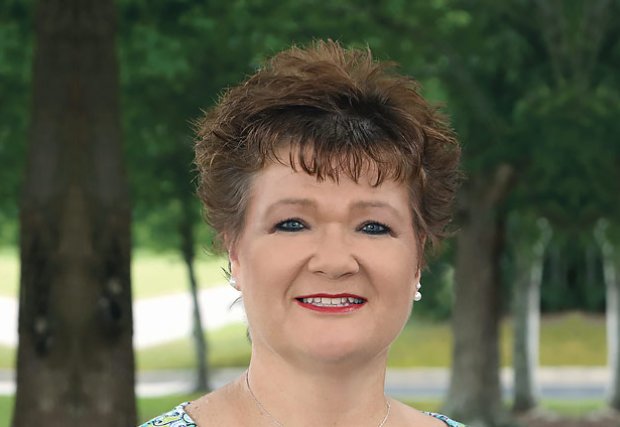After attending a diabetes management class, Sharon Hoover has lost weight and her blood sugar is now within normal range.
Sharon Hoover, who works in Patient Financial Services at Aiken Regional, had been a pre-diabetic for seven or eight years. Her parents had late-onset diabetes, so she knew she was predisposed to diabetes. Her doctor recommended she attend classes at Aiken Regional’s Diabetes and Nutrition Teaching Center. But since a family member was a registered dietitian, she opted to speak with her about healthy eating, rather than attend a class.
“I would try to be really careful about my sugar intake and did well for a while, but then my daughter had a baby and I was not paying attention to my health anymore,” says Hoover. “Then one day, I wasn’t feeling well, developed a fever and went to the ER. My blood sugar was almost 300, and my A1C was 9.8! The doctors told me I was diabetic.”
Hoover says when she followed up with her primary care physician, he mentioned the class again to her. This time, she realized that what she had been putting off could help get her back on the road to good health.
Class is Now in Session
Darren Waters, Director of Outpatient Services, explains how the classes work. “Prior to the first class, height, weight, vital signs, BMI, body fat percentage, and finger stick blood glucose are performed so patients and the education team can track their progress. In the training session, patients are taught about diabetes, complications, treatment, medications, exercise, blood glucose monitoring and meter training, self-interventions, their individualized meal plan, community resources and then set goals for themselves.”
Hoover says she learned about the types and stages of diabetes, different medications, what blood sugar levels are normal for her, calorie and nutrition density of foods, meal planning and how to portion out carbohydrates, fruits, proteins and vegetables.
“We received a food substitution book for when eating out. It was really helpful because it makes you stop and think about what you are going to eat,” says Hoover. “We also learned what types of snacks are good to have for on the go, so we aren’t tempted by foods that could be detrimental.”
The next two sessions were one-on-one with an educator who discussed blood work, kidney and liver function, drinking water and proper foot care. She has made tremendous strides in changing her lifestyle and feels so much better. “So far, I have lost 30 pounds by eating healthier food and by exercising. My blood sugar is now within normal range and I am also sleeping better,” Hoover says.
Nancy Goslen, RN, BSN, Certified Diabetic Educator, says, “Sharon Hoover exhibited a willingness and a personal enthusiasm to make positive lifestyle changes.” Hoover says the class was a lifesaver for her, because it made her stop and take a look at her health and what she was doing. “I am grateful for the support from everyone here. The classes helped me realize that I am not alone and I have the support to be successful.”


